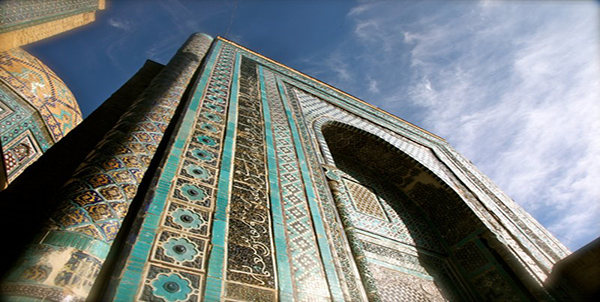NUH AS [ PART 1]

The Construction of the Ark
As was the fate of most Messengers of Allah, Nuh AS was the sole figure in his community and alone in his mission to carry the word of God. The turning point was when Nuh AS saw that save for a cluster of believers, there was no further good in his people. At this point, after over 950 years of calling them towards Allah and giving them ample opportunity to change their ways, he called out to Allah in distress. He said: “My Lord! My people have rejected me. So make judgment between me and them, and rescue me and the believers with me.” (Al Qur’an 26:117 – 26:118) Nuh AS also supplicated: “My Lord! Leave not even one of the disbelievers upon the earth. For, if You leave them, they will lead astray Your slaves and will not beget any but wicked, ungrateful ones.” (Al Qur’an 71:25 – 71:27)
It was then revealed to Nuh: “None of your people will believe except those who have believed already. So do not be sad because of what they used to do.” (Al Qur’an 11:36) This verse was an ease and comfort from Allah, indicating that Nuh AS had progressed the da’wah as far as was required of his duties and that he was, in a figure of speech, exonerated from the mission of continuing such futile efforts with his community. Nuh AS was also commanded to “construct the ship under Our Eyes, and with Our Revelation, and call not upon Me on behalf of those who did wrong; they are surely to be drowned.” (Al Qur’an 11:37)
Thus the construction of the Ark began, as did the countdown towards the destruction of the non-believers.
Lesson for us – The Understanding Behind a Ritual and the Requirement for us to Spread the Message
How did the first of mankind descend into idolatory? The answer illustrates the danger of blind worship, when people imitate rituals without understanding the underlying purpose. When the first generation died, they failed to transmit the knowledge and intention behind the erected statues to their heirs, and this led to ignorance.
This danger has touched the Islamic community – for many of us, Islam is an inherited religion. People adopt the Islamic label simply because it was the heritage of their parents. They replicate the rituals because it is expected of them, but they do not even comprehend the basics of Islamic principles. Islam is about submission. You cannot have faith until you know who you worship. It is a journey of knowledge. It is not just about worship, it is an entire way of life and moulds who you are as a person. Worship with an empty heart is an empty act. Such a person, if confronted about his faith, will be easily confused and from there, his lack of knowledge allows multiple doubts about his religion to creep in.
It is the lack of knowledge that leads to deviant practices. There is evidence that 40 million Muslims today indulge in grave worshipping, a practice that leads to shirk and brings one out of Islam altogether.
There is no excuse for ignorance, especially in current times.
We can all go to the library to buy books. research on line or can make enquiries about Islam, because the resources on Islam are abundant in English and other languages. If we can make an effort to do well in school and college, we have the intellect and ability to research on Islam. If our houses are decorated with racks of academic books and music, we can, if we wanted to, also fill them with an Islamic library.
Islam is not a magic formula. It has to be learnt and understood. This is the only way to prevent the erosion of our faith, to ensure that we are on the right path and to preserve our religion for generations to come.
Messengers and Prophets were sent to the earth to transmit and continue Islamic education. Allah in His wisdom has granted most of them a common characteristic – they were often poor and had no social status within their respective communities. Why didn’t Allah make the Prophets and Messengers among the elite and rich? If He had done so, we can easily give excuses of not being able to follow their path due to our lack of status and money. Instead, the humble backgrounds of Messengers and Prophets demonstrate that power lies with Allah, and if one is in the path of Allah, Allah can grant the person victory over his people.
Another characteristic is that none of the Messengers and Prophets made the spreading of Islam a money making venture or for self interest. This means that they are immune from corruption, and cannot be bought to either distort the message or silence the message. When they initiate any effort to spread Islam, their sole motivation is the pleasure of Allah, to the exclusion of all else. Today, there is a disturbing trend where Islamic events are used to line the financial coffers of speakers and scholars, in a way never witnessed in our Islamic history before.
Another lesson learnt is that we cannot guide whom we want. Guidance comes only from Allah. Our duty is to make the effort to deliver the message through da’wah. We need not wait for the results, for Allah, being the turner of hearts, is the only One who can determine the outcome of our efforts. What Allah wants to see from us is our struggle and effort, and to always have hope in Him. Here, Nuh AS preached patiently for 950 years, but his followers were few, by most accounts less than 90. Why then was he granted the title of Ulul Azm, one of the greatest five Messengers of all time? It was because of his perseverance, not because of the results.
Now that the Message of Islam has been perfected, the tale of Nuh AS shows that we should persevere until the day we die, and not get discouraged in our efforts to spread the truth.
Click here for the conclusion.


![Photo of ADAM AS [ PART 1]](/wp-content/uploads/2020/09/d6086de322f98f66cc694f32ea284557_XL_0-390x220.jpg)
![Photo of ADAM AS [ PART 2 ]](/wp-content/uploads/2020/09/106117794.Gu9ZCkGy-390x220.jpg)
![Photo of NUH AS [PART 2]](/wp-content/uploads/2020/09/nuh-as-part2-390x220.jpg)